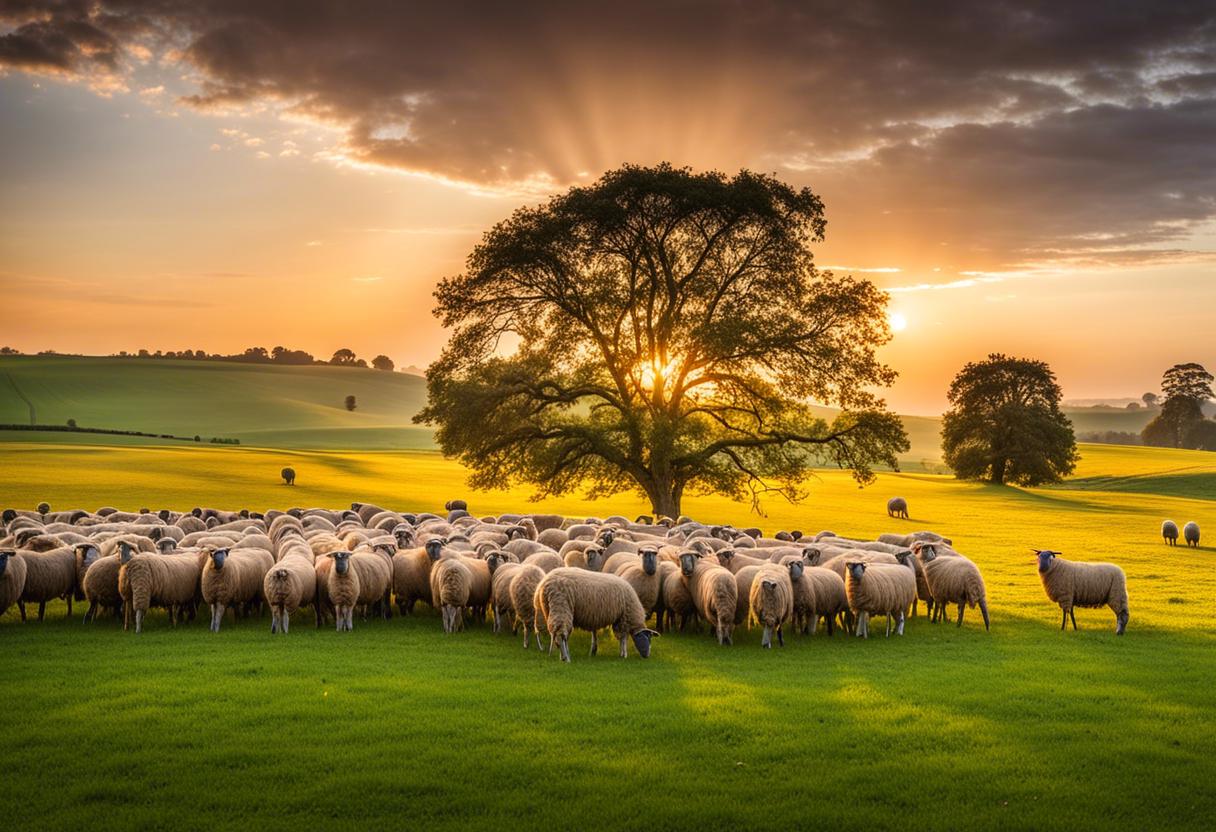John Connell, a farmer, author, and filmmaker from Co Longford, penned a reflective memoir titled “The Stream of Everything” two years prior as a response to the Covid lockdown. Once he finished writing this book, he descended into a gloom he labelled as “soul weariness” in his latest book, “Twelve Sheep: Life Lessons from a Lambing Season”. Despite not being an episode of the ongoing depression he openly addressed in his earlier works, this slump proved more difficult since it led to isolating grief, and worse, a creative drought for the usually imaginative Connell.
“Twelve Sheep” takes readers along Connell’s journey towards rejuvenation and meaning, signifying his maturing style in the spiritual nature writing field. In doing so, he carries the torch of the late renowned Irish poet and thinker, John O’Donoghue, helping to perpetuate the bardic tradition in Irish literature.
Connell finds deliverance in a group of 12 sheep purchased from the family farm; he had documented this farm in his popular book, “The Cow Book”. At 29, after a decade of globe-trotting, he returned to his birthplace in Longford to settle down. Being familiar with his parents’ sheep industry since his reunion with the family establishment, the 12 ewes he acquires offers a unique challenge – their offspring’s survival depends entirely on him.
His father comments, “12 stories awaiting to be narrated by the end of the season.” What proceeds is a series of those narratives, eloquently relayed over 12 succinct chapters, each concluding with a universal morale.
Within this solid framework, Connell cleverly interlaces a variety of threads, seamlessly meshing intimate essays, incidental philosophy, and close studies of nature and seasons. He also intertwines discussions on literature and art, inspiring quotes from his beloved writers, his own up-to-date social and cultural viewpoints, and his relationship with the 12 ewes and their lambs’ upbringing.
Throughout it all, Connell manages to derive significance.
Twelve Sheep, akin to many other revered spiritual manuscripts, presents a harmony between the subject matter and the way it is expressed. The fluidity, rhythmic harmony and momentum of the text cultivates a deeply soothing and contemplative mood within readers. It encourages immediate cognizance – appreciating the present state of things, a principle touched upon by the book’s subject. It’s a delight to read a writer who daringly contradicts our materialistic beliefs and articulates life’s enchantment.
Connell reveres nature and this respect is conveyed practically in the chapter entitled ‘We Must Love our Home’. The episode discusses Connell and his father’s endeavor to plant trees in their farm, which recently embraced organic practices. This action taken by Connell serves as his effort to counterbalance the countless air miles accrued during his decade of travelling.
It’s clear Connell holds an environmentally-centred viewpoint. Nevertheless, there seems to be an elephant–or perhaps a large sheep–in the room. While he provides detailed descriptions of the ecological damages caused in Australia and Patagonia by sheep, he only mentions, peripherally, the degradation of our own national grasslands and woodlands–and the alarming depletion of upland topsoil–caused by the sheep population of our country.
Connell raises the question, “Is farming a contributing factor to this problem?” However, no convincing answer is provided. This invoked discomfort is somewhat eased by his keen recognitions of the issue of overuse of antibiotics in livestock and the pressing necessity to support rural families and communities towards establishing sustainable livelihoods on Irish lands. It reflects hope to read his accounts of the young generation’s return to rural Ireland and the thriving new businesses that migrants are establishing in local towns.
The concluding chapter in Twelve Sheep, titled ‘Love is All You Need’, brings forth the book’s revelation. Here, Connell cites the words of the German-Swiss author Herman Hesse: “Our lives become increasingly meaningful as our capacity for love and dedication grows.” Connell pens with intent to transform his own suffering along with that of his readers. In his hymn to the strength of love, he accomplishes this transformation for himself and for his readers.

